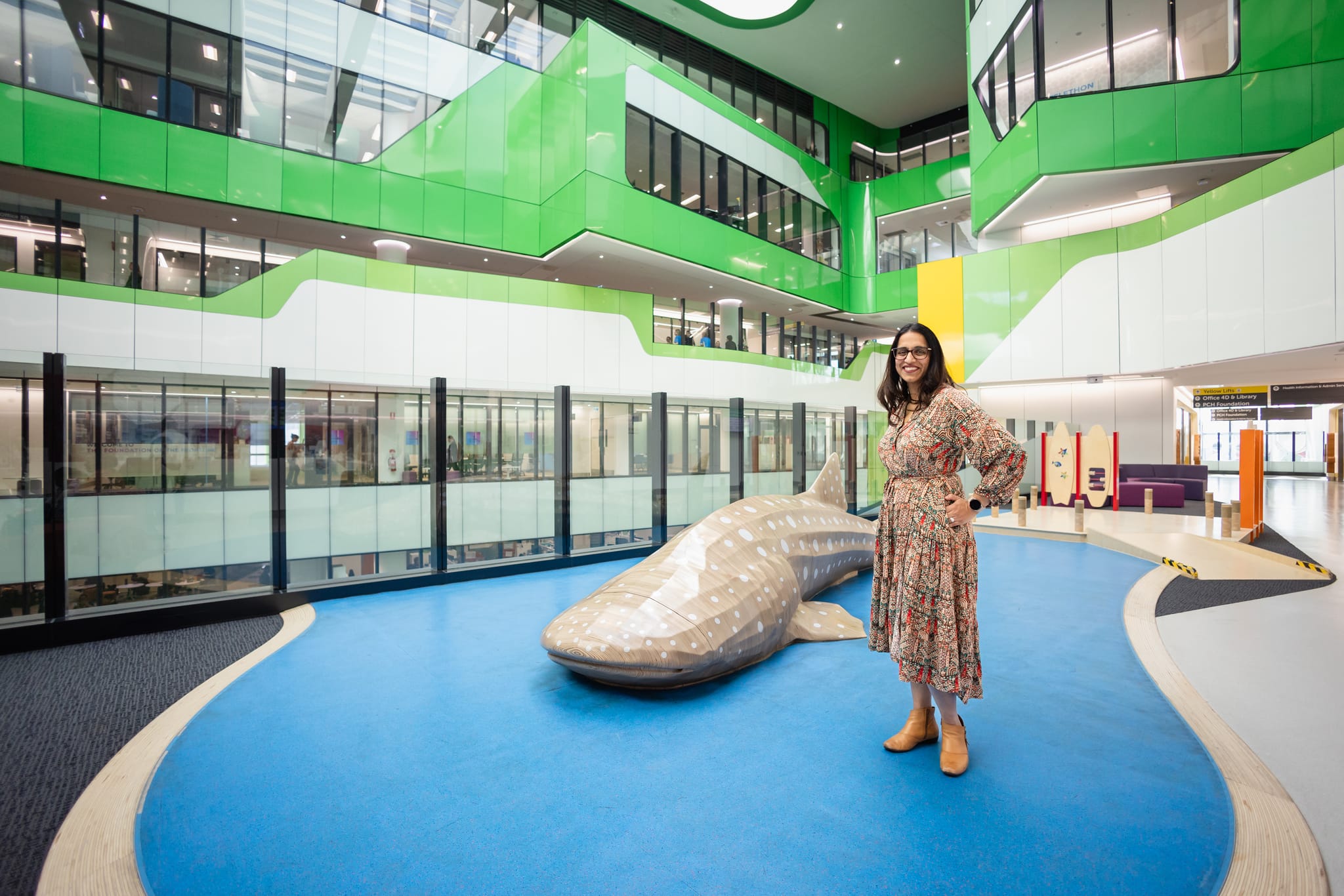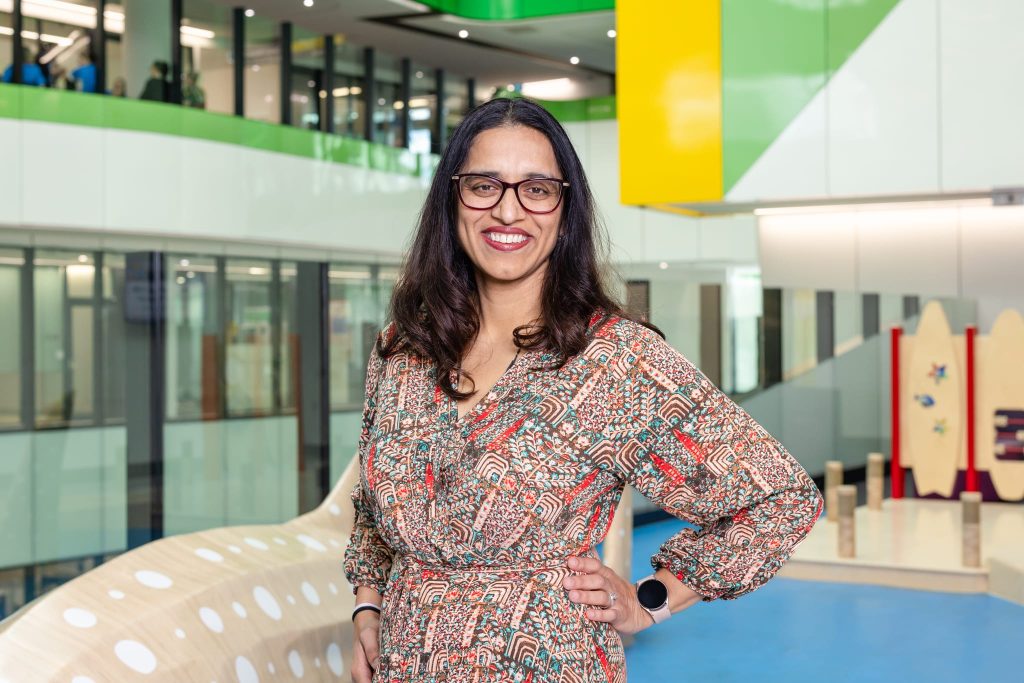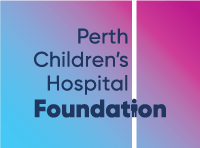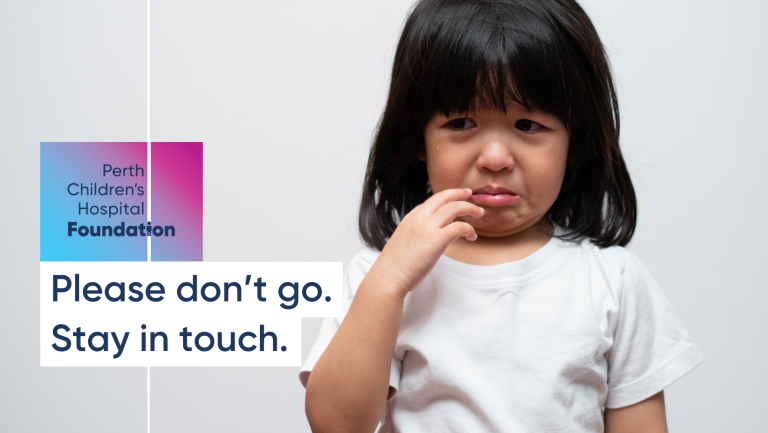
WA leads the way with RSV prevention study.
- Perth Children's Hospital Foundation
WA leads the way with RSV prevention study.
- Perth Children's Hospital Foundation
The REVIVE study – funded by Perth Children’s Hospital Foundation – will evaluate the effectiveness of the first RSV prevention program in the Southern Hemisphere.
A groundbreaking WA study is set to be the first in the Australia to assess the effectiveness of new RSV immunisation, Nirsevimab, against RSV associated hospitalisation.
The REVIVE study (REspiratory syncytial Virus Immunisation program – eValuating Effectiveness and impact) is evaluating Australia’s first state-funded RSV immunisation program for infants and children, which was launched by the WA government last month.
RSV is the most common cause of respiratory infection and the leading cause of bronchiolitis and pneumonia in children worldwide. It is estimated that around 1000 WA babies are admitted to hospital with RSV disease every year, with 10 per cent of those ending up in intensive care.

REVIVE study lead, Dr Ushma Wadia, a consultant paediatrician at PCH’s Infectious Diseases Department said: “Our aim is to understand if WA’s RSV prevention program is keeping babies out of hospitals and emergency departments.
“The goal is to provide timely data that will help to inform both State and Commonwealth Government policy on the inclusion of the Nirsevimab RSV immunisation in future national prevention programs.”
RSV is very infectious and primarily spreads through droplets generated when we sneeze or cough. In Australia, the RSV season generally runs from May – September each year.
While most infants will experience mild, cold-like symptoms, babies less than six months old are at higher risk of developing serious illness including bronchiolitis and pneumonia. A single dose of Nirsevimab works almost immediately, providing ready-made RSV antibodies to protect infants and children against RSV disease for at least five months.
Perth mum, Katherine, is urging WA parents to take up RSV immunisation this winter, after her daughter Hazel needed to be put into an induced coma in 2020 due to the virus. In just days, Katherine was unable to wake 10-week-old Hazel, and a Code Blue emergency was called as her heart rate fell below 20bpm. She was then taken to the Intensive Care Unit at PCH, where she was intubated, and spent 22 days in hospital, after suffering seizures and a collapsed lung as a result of RSV.
PCHF CEO Carrick Robinson said: “Reducing pressure on hospitals and emergency departments is vital. By working together to collect robust data on WA’s RSV prevention program, we have the opportunity to drastically reduce the number of children severely affected by RSV across Australia, both in 2024 and beyond.”
Dr Wadia said that by the time they were two, most children would have experienced an RSV infection.
“Most children hospitalised with RSV are healthy children. This has a massive impact on our hospitals and the health system more broadly,” she said. “Hospitals and emergency departments fill with babies with RSV every winter. By assessing Nirsevimab use in children with and without RSV infection, we will be able to estimate just how effective this immunisation is when it comes to protecting vulnerable young babies and keeping families out of hospitals.”
The REVIVE study will also survey the parents of children admitted to hospital with RSV, to understand their perspective and tailor programs to increase Nirsevimab uptake in future.
Newborns, babies under 8 months of age and some children 8 to 19 months at increased risk of severe RSV infection are now eligible for free RSV immunisation at GP practices, Community Health Clinics and participating Aboriginal Medical Services.
This multi-year study recently began recruitment at Perth Children’s Hospital, Fiona Stanley Hospital and Joondalup Health Campus, ahead of a predicted winter surge in RSV cases. The first results from the REVIVE study are expected to be available in late 2024.
The REVIVE study is possible thanks to Perth Children’s Hospital Foundation (PCHF), the Child and Adolescent Health Service (CAHS), University of Western Australia (UWA), Telethon Kids’ Institute, PathWest, Stan Perron Charitable Foundation and the Wesfarmers Centre of Vaccines and Infectious Diseases Advisory Group (VIDAG).

